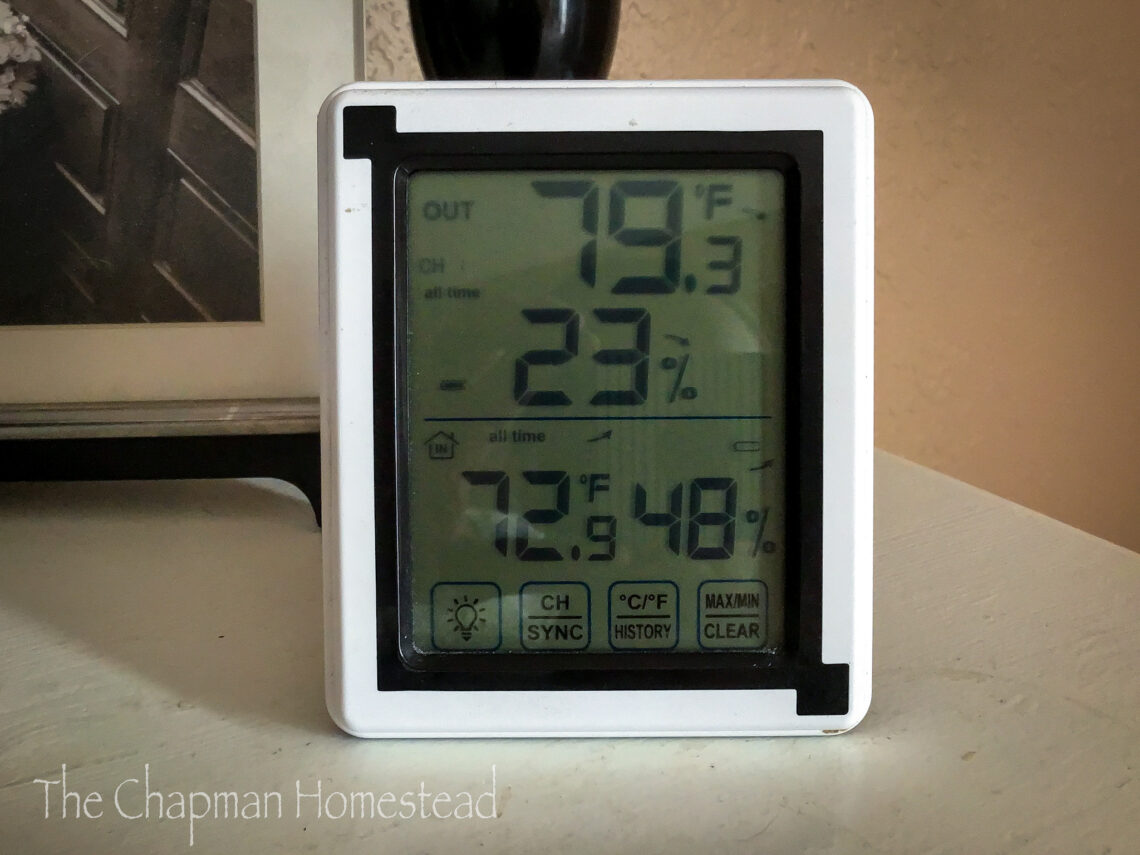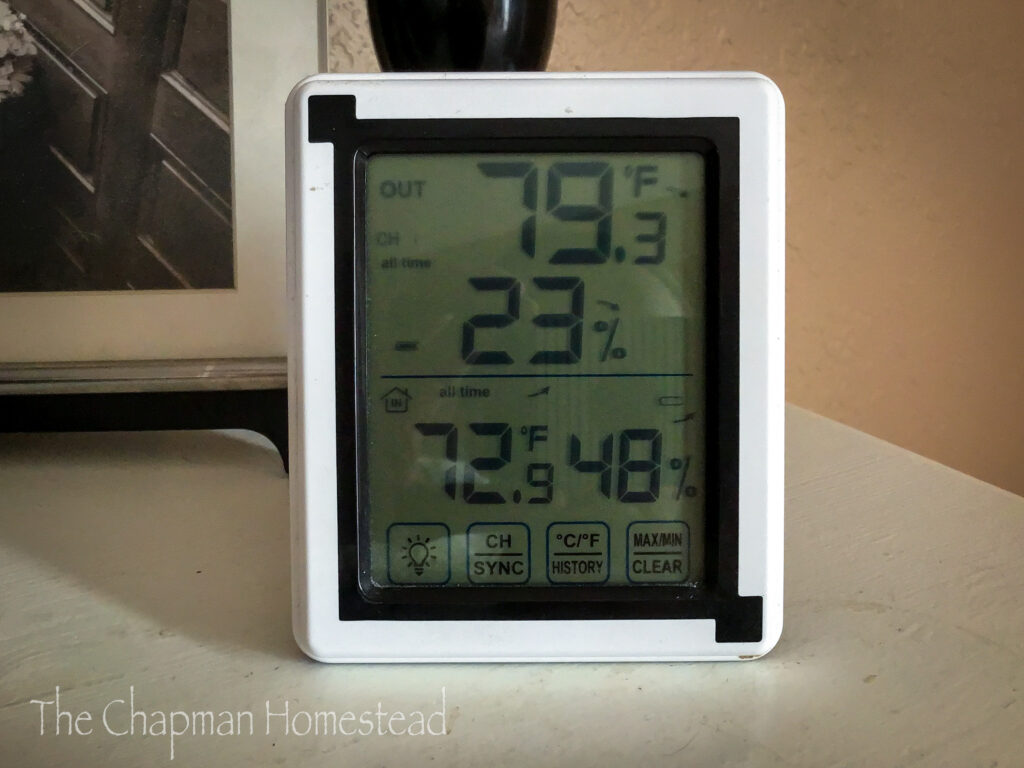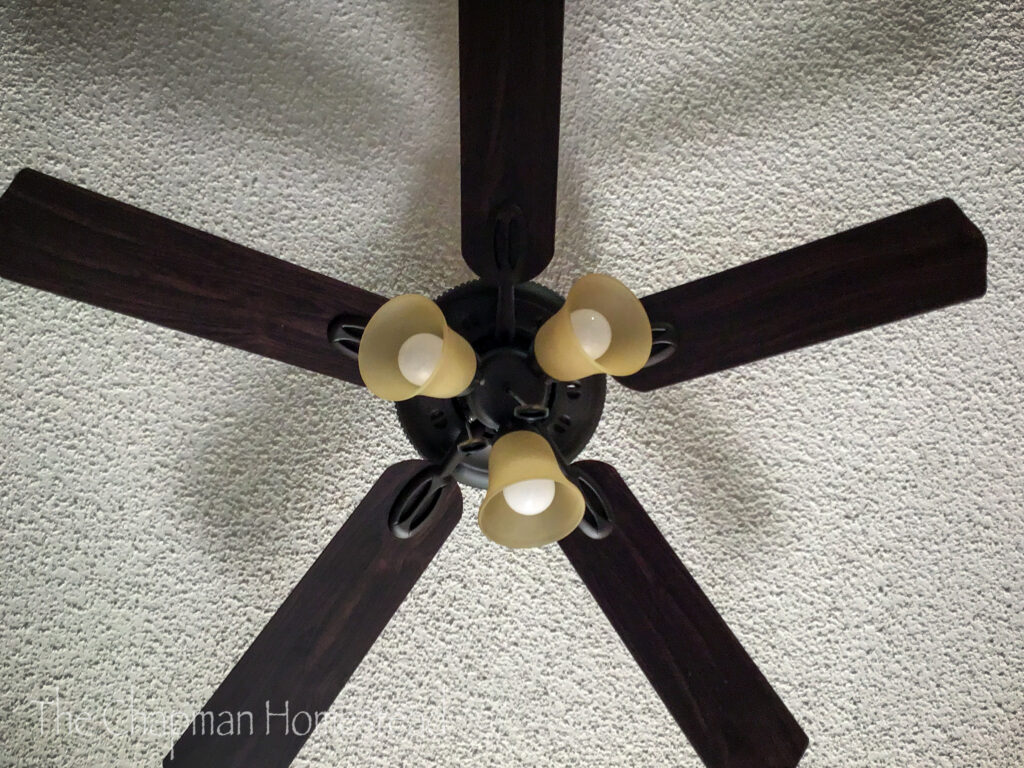
12 Easy Ways to Survive the Heat Without Air Conditioning
Summer is in full force here at 7300 feet.
And that means it’s hot. Almost 90°F in the shade hot.
Now I realize, that if you live in a place where it regularly gets to 100°F or more that 90° is nothing. You’re probably asking, “So what? Just stay inside with the AC.”
However, when you live at 7300 feet, especially in an older house, you don’t have AC.
It used to be that we didn’t really need or want it except for a week or two in August each year.
However, summers have been getting hotter, and we are seeing more and more days above 85° where we live.
“So why don’t you just get AC installed, or buy a window unit?” you might ask.
Not only is air conditioning expensive to install and run, there are environmental impacts as well. Current air conditioning systems are not known for being environmentally friendly. In fact, many sources are starting to acknowledge air conditioning’s roll in the climate change that is fueling these unprecedented heat waves.
If you’re interested in reading more, check out this article from the UN News, and this one from The Climate Institute. (The article from The Climate Institute is more than two years old, but the UN News article is from 2020.)
So what’s a girl to do? Sitting inside a house that’s almost the same temperature as outside it not fun. Trust me.
Well, as I write this, according to the thermometer in the kitchen it is 89°F outside and only 73°F inside as of 4pm. It took most of the day just to get to 70°F despite reaching 85°F outside before noon. And we did this without an AC.
Here’s 12 ways we beat the heat without Air Conditioning:
1. Cover your windows with blackout curtains.

Windows can be one of the biggest sources of excess heat in your home, even if you have well rated double pane windows with a glaze on them. Blackout curtains, blinds, or shades can help reflect light and reduce the amount of heat entering your home through your windows.
We have blackout curtains or celular shades on all the but the large front windows in our home. Some of our windows have both for added benefit. The window covers help us keep our house cooler in the summer as well as reducing heat loss at night and on cloudy days during the winter.
They are also a relatively cheap solution. While cellular shades, especially custom ones, can be quite pricy, you can get a cheap blackout curtain for about $10 a panel at Target. Fancier curtains will run you more than that, but they are still cheaper than buying and running a small air conditioning unit.
I “thought” we had good enough curtains on our south facing windows. However, this week we added a set of actual blackout curtains on tension rods inside the windows. We went from the house being 77°F by 4pm to it only being 73°F. My recommendation is to make sure you don’t have any light coming in from your windows, at least when the sun is shining directly in them.

2. Open your windows at night.
You probably already knew this. Used alongside tip #3 this is the second best thing you can do to keep your house cool.
If you’re concerned about leaving windows open all night, cut a wooden dowel to put in the window track.
3. Pay attention to the temperature inside and outside.

A cheap temperature gauge inside and outside your house is all you need for this solution.
In the evenings, open your windows as soon as the temperature outside is equal to the temperature inside. In the mornings, close your windows as soon as the temperature outside starts rising above the inside temperature.
Since we have the summers off, this does mean I have to set a 5:00 a.m. alarm to shut the windows. However, this helps our house stay cooler most of the day.
4. Use fans strategically.
No, a fan will not make your house cooler all by itself. However, fans can help you cool off by making sweat evaporate faster. They can also help to move hot air out and cool air in once the outside temperatures cool off.
Here’s a neat trick to try if your windows are at a good height to sit a box fan in front of them. (You can also use a chair to prop a box fan up higher.) Open two windows on opposite ends of your house. If you have more than one story, have the open windows be on different stories. Put a box fan about a foot away from one of the windows pointing out and turn it on. This will create a wind tunnel through your house, forcing hot air out and sucking cool air in.
According to my father-in-law, a retired firefighter, this is a method they use for clearing smoke from homes quickly.
Your ceiling fan can also help move cooler night time air throughout your house.

If you are concerned about the cost of leaving a fan on over night, don’t be. Based on the information I could find, a ceiling fan costs about one cent per hour, on average to run.
5. Drink cool beverages to stay hydrated.
Iced tea anyone?
In hot weather, it’s very important to stay hydrated. If drinking water isn’t your thing, add some lemon, lime, or other fruit to the water.
You could also leave a pitcher of water, or tea, in your refrigerator. Not only will you be able to have a nice cool drink on demand, it will also help reduce the amount of electricity your fridge needs to stay cool on those hot days.
In all reality though, go easy on the iced tea, especially if it’s caffeinated.
And skip the beer during extreme heat. Alcohol can affect your body’s ability to regulate temperature. During a heat wave, this can be increasingly dangerous.
6. Eat sandwiches, or cook outside.
It’s no surprise that cooking heats your house. When it’s hot, it’s a great time for simple sandwiches or to fire the grill.
7. Skip the dryer.
Even on low, running the dryer is going to raise the temperature of your home.
When you don’t have AC and are trying to stay cool, every little bit helps.
If you can’t wait to do laundry, take advantage of the heat to air dry your clothes outside. At the very least, wait until the outside temperature starts to cool off in the evening to run the dryer.
8. Take a cool shower or get your hair wet.
A cool, wet, towel around the back of your neck also can help.
9. Spend time in the cooler parts of your house.
Also, close off the warm areas of your house if you are not using them. This can keep at least some of the heat from circulating into the rest of the house.
10. Install an attic or whole house fan.

While not a cheap solution, this will help your house to cool off faster in the evening and overnight. We installed one last summer, and it helps us to cool off individual rooms quickly in the evening.
However, I do find that if there is a breeze coming in the windows, it is better to just open all the windows than to run the fan with only a few windows open.
11. Skip the outdoor projects if you can.
Take a clue from your animals.
All of our ducks, chickens, and geese find a nice shady spot to lay around in during the hottest hours of the day.
Plan any outdoor work you need to do around these hours to reduce the heat stress on your body. The middle of a heat wave is not the time to be doing your outdoor projects.
Aside from checking on the animals and any seedlings or transplants, I try to avoid any outdoor work during the hottest parts of the day.
12. Don’t forget about your animals.
They get hot too!
Make sure they have plenty of cool water and a shaded area they can retreat to when needed.
It is also important to know what the signs are of heat stress in the different animals you have on your homestead.
Do you have any different ways you and your family keep cool without air-conditioning? Leave a comment below sharing your strategies.





